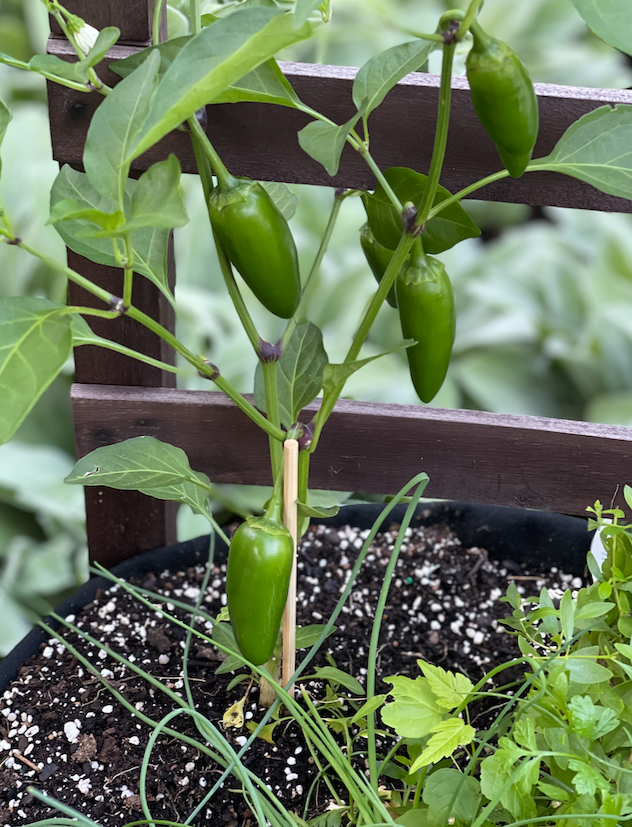Organic Vs. Synthetic Fertilizers: Which Is Best for Nurturing Healthy Pepper Plants?
In the realm of nurturing healthy pepper plants, the choice in between artificial and natural fertilizers stands as a crucial choice with significant implications. While both options purpose to supply necessary nutrients to support plant growth, the subtleties of their influence on the soil, plant wellness, and the setting trigger an argument that echoes throughout the horticulture neighborhood. Understanding the distinctive advantages and possible challenges of each plant food type is crucial for pepper growers looking for to optimize their returns while preserving an eco-conscious and lasting technique.
Advantages of Organic Fertilizers
Organic plant foods supply a lasting and environmentally-friendly approach to beneficial pepper plants, supplying vital nutrients without the use of synthetic chemicals. These all-natural plant foods are originated from organic resources such as garden compost, manure, bone meal, and algae, promoting soil health and wellness and biodiversity. Unlike synthetic plant foods, organic alternatives release nutrients slowly, ensuring a consistent and well balanced supply for pepper plants to flourish.
One substantial benefit of organic plant foods is their ability to enhance dirt framework and water retention. By improving dirt wellness, organic plant foods advertise useful microbial task, which assists in nutrient uptake by pepper plants. Furthermore, natural fertilizers minimize the risk of chemical run-off, securing water resources from pollution and guarding the environment.
Moreover, natural fertilizers contribute to lasting soil fertility by advertising the development of useful dirt organisms. These organisms aid break down organic matter, launching nutrients in a form that is quickly obtainable to pepper plants. best fertilizers for peppers. By fostering a healthy dirt ecosystem, organic fertilizers sustain lasting pepper farming practices that profit both plants and the environment
Disadvantages of Artificial Fertilizers
Synthetic fertilizers, in comparison to their natural equivalents, posture numerous downsides when utilized to nourish pepper plants, impacting both plant health and ecological sustainability. One significant drawback of synthetic plant foods is their propensity to leach nutrients from the dirt rapidly.
Furthermore, the overuse of artificial plant foods can add to water pollution. Excess plant foods not taken in by plants can get rid of into water bodies, resulting in eutrophication, where algae blossoms deplete oxygen levels in the water, hurting aquatic life. Synthetic plant foods are normally obtained from non-renewable resources, such as fossil gas, adding to carbon discharges and ecological degradation throughout their manufacturing.
Nutrient Absorption Contrast
When contrasting organic and synthetic fertilizers in terms of nutrient absorption, organic plant foods have the benefit of offering a much more well balanced and slow-release resource of nutrients. Organic fertilizers consist of a selection of macro and micronutrients that are not just valuable for the plants but likewise advertise healthy dirt microbial task, which assists in nutrient uptake.
Furthermore, organic fertilizers enhance soil structure and water retention capability, enabling pepper plants to gain access to nutrients Source a lot more effectively. This better dirt top quality facilitates root development, allowing much better nutrient absorption. Synthetic fertilizers, although at first increasing plant development because of their high nutrient concentrations, may impede long-lasting nutrient absorption by derogatory dirt health and wellness gradually.
Ecological Effect Factors To Consider

On the other hand, artificial plant foods, although typically more quickly offered and concentrated to plants, can have damaging impacts on the environment otherwise applied appropriately (best fertilizers for peppers). Their production calls for high energy inputs, bring about greenhouse gas exhausts and contributing to environment modification. In addition, the overflow More Help of excess synthetic plant foods can pollute water sources, causing eutrophication and harming marine ecological communities.
Ideal Fertilizer Practices for Peppers
To accomplish this, it is necessary to adhere to best fertilizer methods tailored to the certain demands of pepper plants. One crucial practice is to perform a soil test before applying any fertilizers.
Another important practice is to fertilize pepper plants at the right time. Usually, peppers take advantage of obtaining plant food at growing and after that again when they start to flower. Over-fertilizing can lead to nutrient discrepancies and hurt the plants, so it is important to follow recommended application rates.
Additionally, choosing a balanced fertilizer with an NPK ratio that fits pepper plants' requirements is basic. Organic plant foods, such as compost or manure, can be superb options as they release nutrients gradually and enhance dirt framework in time. Nonetheless, artificial fertilizers can give a quick nutrient increase when needed. Inevitably, integrating synthetic Going Here and organic plant foods sensibly can help nurture healthy and balanced pepper plants while lessening environmental effect.
Conclusion

Organic fertilizers use a sustainable and environmentally-friendly strategy to beneficial pepper plants, providing vital nutrients without the use of synthetic chemicals. Unlike artificial fertilizers, natural alternatives release nutrients slowly, making sure a well balanced and steady supply for pepper plants to flourish.
Artificial plant foods, in comparison to their organic counterparts, present numerous disadvantages when used to nourish pepper plants, influencing both plant wellness and environmental sustainability. When comparing synthetic and organic plant foods in terms of nutrient absorption, natural plant foods have the advantage of offering a much more well balanced and slow-release source of nutrients.Furthermore, organic fertilizers enhance soil structure and water retention capacity, enabling pepper plants to gain access to nutrients extra successfully.